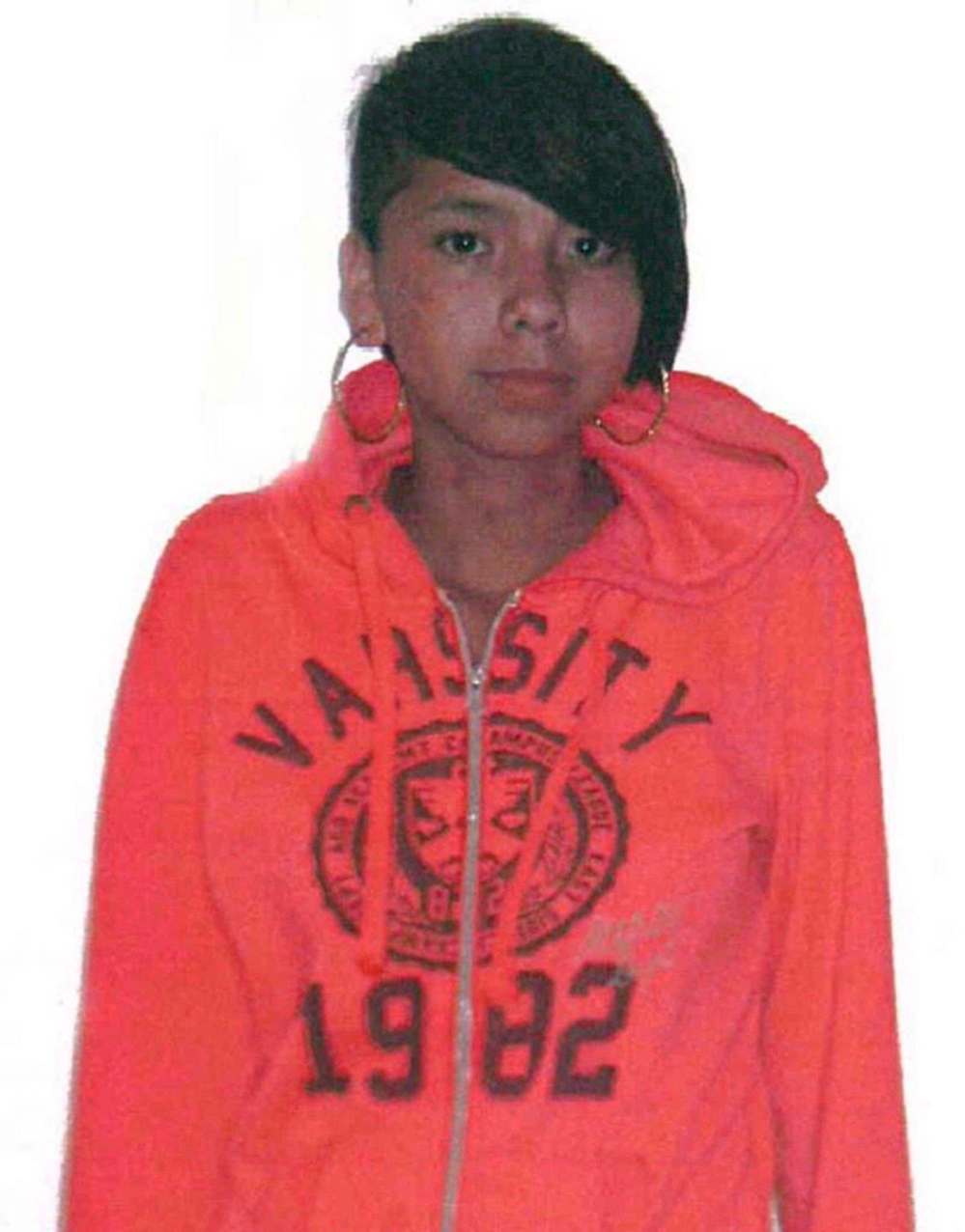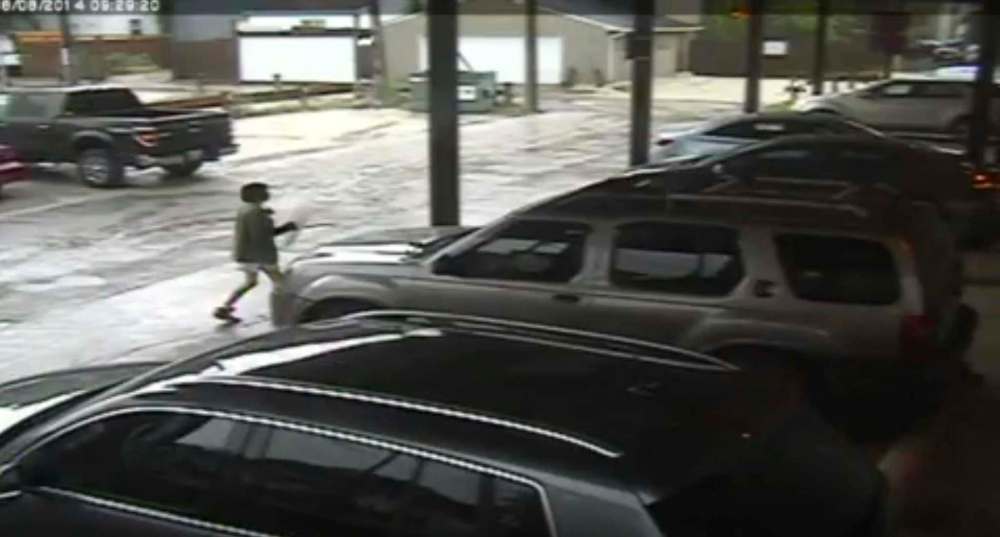Officer who saw Tina Fontaine before her disappearance ‘blamed himself for her passing’
Advertisement
Read this article for free:
or
Already have an account? Log in here »
To continue reading, please subscribe:
Monthly Digital Subscription
$19 $0 for the first 4 weeks*
- Enjoy unlimited reading on winnipegfreepress.com
- Read the E-Edition, our digital replica newspaper
- Access News Break, our award-winning app
- Play interactive puzzles
*No charge for 4 weeks then billed as $19 every four weeks (new subscribers and qualified returning subscribers only). Cancel anytime.
Read unlimited articles for free today:
or
Already have an account? Log in here »
Hey there, time traveller!
This article was published 21/02/2018 (2254 days ago), so information in it may no longer be current.
Craig Houle had only been on the job as a police officer for a few weeks when he crossed paths with Tina Fontaine. He missed an alert that flagged her as a missing person, and watched the 15-year-old girl walk away in the pre-dawn hours that summer morning in Winnipeg, nearly four years ago.
She wasn’t seen alive after that day. Nine days later, her body was pulled from the Red River tied in a duvet cover filled with rocks.
“From that point forward, Craig’s life simply took a different turn. He became obsessed with what happened. He blamed himself for her passing,” criminal defence lawyer Richard Wolson said during a January sentencing hearing for Houle, who had found himself on the wrong side of the law.

Tina’s death is part of the reason Houle is no longer a police officer — but not because of anything he did or didn’t do during his field training the morning of Aug. 8, 2014, when he and his partner let Tina go, despite the fact she was listed as a missing person.
What Houle did after her death became the reason the 27-year-old from Ebb and Flow First Nation faced, and ultimately avoided, a criminal record.
He pleaded guilty to two counts of possession of property obtained by crime under $5,000, and was granted a conditional discharge with an 18-month probationary period and 75 hours of community service work. The former officer’s sentencing hearing happened less than a month before he testified in court during Raymond Cormier’s second-degree murder trial, contributing to Crown prosecutors’ timeline of events during Tina’s last day.
The day when police and Tina crossed paths
It was after 5 a.m. on Aug. 8, 2014, when officer Craig Houle and his partner — former constable Cornelis Brock Jansen, an eight-year member of the Winnipeg Police Service who was showing him the ropes — pulled over a black pickup truck, and found 15-year-old Tina Fontaine in the passenger seat.
She at first gave police a fake name — “Tessa Twoheart” — and a birthdate that would have made her 20 years old. When she eventually revealed her true identity, Houle scanned the police cruiser’s on-board computer system, saw her photo but no warrants for her arrest.
There was a flag that she had been a missing person in the past, but Houle would later testify he didn’t notice any active alerts.
It was after 5 a.m. on Aug. 8, 2014, when officer Craig Houle and his partner — former constable Cornelis Brock Jansen, an eight-year member of the Winnipeg Police Service who was showing him the ropes — pulled over a black pickup truck, and found 15-year-old Tina Fontaine in the passenger seat.
She at first gave police a fake name — “Tessa Twoheart” — and a birthdate that would have made her 20 years old. When she eventually revealed her true identity, Houle scanned the police cruiser’s on-board computer system, saw her photo but no warrants for her arrest.
There was a flag that she had been a missing person in the past, but Houle would later testify he didn’t notice any active alerts.
“She had a previous flag of be on the lookout for a missing person,” he said.
Neither Houle nor Jansen, his field trainer, made note of the fact Tina was only 15. They didn’t make any notes at all on their interaction with her. She wasn’t in trouble, and they let her go.
During the second-degree murder trial of Raymond Cormier — accused in the death of Tina, whose body was found Aug. 17, 2014, in the Red River — Jansen testified his focus was on the driver, Richard Mohammed, who was irate and thrashing around in the back of the police cruiser after his arrest for driving with a suspended licence.
Mohammed, who unsuccessfully sought a publication ban on his name, would later testify he picked up Tina on Sargent Avenue, in an area of Winnipeg’s west end known for sex trade work, and asked her if she wanted to “party.”
He didn’t know her name and he didn’t know she was underage, he testified. Police had been following his truck since Tina climbed in, and there was no sexual contact between them before officers pulled the vehicle over on Isabel Street.
Jansen testified he asked Tina — after confirming with Houle there were no warrants for her arrest — why she’d been reluctant to give the officers her real name. She had been reported missing by Child and Family Services after losing contact with her family in Sagkeeng First Nation, as what was supposed to be a weeklong trip to Winnipeg stretched into more than a month away from home.
“I went back and asked her, why have you been lying to me about your name? And she stated something to the effect of, I thought I might have been in trouble. I said, well, you’re not in trouble, from the police anyway, and I asked her where she was living at the time and she stated it was at the Quest Hotel,” Jansen said on the witness stand earlier this month in Winnipeg.
The hotel was nearby, and it was around 6 a.m. by that point, Jansen said. “Just given that she hadn’t actually done anything wrong, we allowed her to go to the Quest… She declined a ride, she didn’t say that she was in any danger.”
A few hours later, Tina was found unresponsive in an Ellice Avenue parkade. Surveillance video footage showed her walking there in the rain with a newspaper over her head, and finding a spot to lay down and sleep.
Passersby saw and called a security guard, Audrey Kohinsky, who testified Tina was unresponsive and her skirt was up. Paramedics roused the teen around 10 a.m., and took her to the Children’s Hospital at the Health Sciences Centre. The physician who treated her, Dr. Andrea Wilkie-Gilmore, testified she believed Tina may have been sexually exploited, but the teen would not consent to a physical exam.
Social worker Kim Chute, who was then working for Southeast Child and Family Services, picked up Tina from the hospital and brought her to a temporary CFS placement at the Best Western Charterhouse hotel downtown.
Tina told Chute how she expected to get a bicycle from her friend “Sebastian,” an alias used by Cormier.
The teen left the hotel after 5 p.m., headed to Portage Place shopping centre, and was not seen alive again.
Jansen is now a civilian member of the WPS. He was suspended from police duties after Tina was found dead, and he was given a notice of termination following an internal investigation. He filed a grievance, and resigned as a police officer before becoming a civilian property evidence technician.
— Katie May
The jury was told of Houle’s criminal conviction, and that he resigned from the police force after two years of service, but jurors weren’t given any details about his thefts or what led to them.
Houle, unlike the more experienced officer who was training him when they encountered Tina, was reinstated on the police force after an internal Winnipeg Police Service, six-month professional misconduct investigation.
However, Houle blamed himself for the teen’s death, and he blamed his resulting depression for his unexplainable thieving behaviour in the months after he returned to work. Three months after homicide investigators arrested Cormier as a suspect in Tina’s death, Houle was arrested, too, in a different undercover investigation that revealed the constable was behind an online classified ad selling off WPS equipment.
He admitted to stealing more than $8,000 worth of police and Canadian Armed Forces equipment, including ammunition, a tactical shotgun, brass knuckles, a plain-clothes police badge, grenade simulator, boots and flashlights.
Over the course of three months with Houle on desk duty, items started to go missing from officers lockers and the WPS gym. On Feb. 22, 2016, a police officer noticed a listing on the website Kijiji, advertising WPS-issued tactical boots and a flashlight. The ad was traced to Houle, who later sold the flashlight to an undercover officer. The other items were discovered after police got a search warrant for Houle’s apartment.
“I don’t even know why I did it. I was in a dark place. I was not myself,” Houle told a probation officer, who quoted Houle in a pre-sentence report filed in court. “I had no purpose for the stolen items, didn’t even use or wear them, and was not trying to sell them.”

After Tina’s death, Wolson argued his client “simply felt that he didn’t have a purpose. He fell into a deep depression.”
Since his arrest for the thefts, Houle has taken counselling and volunteered with several community groups, including the Bear Clan Patrol, Ma Mawi Wi Chi Itata Centre and Siloam Mission. Those efforts to “refocus” after losing his policing career and his involvement with the Royal Winnipeg Rifles infantry regiment played into a provincial court judge’s decision to spare him a criminal record.
“Every time a police officer steps out of line, it’s a very public matter, and it’s something that causes people to question whether or not those who are there to protect them are truly acting in the public interest. So I do take that as an aggravating factor,” Judge Ryan Rolston told Houle. But he acknowledged Houle had recently graduated from the police training academy and was “wet behind the ears” when he encountered Tina.
“What happened was a mistake. It was also not just your mistake, and it also doesn’t put the responsibility of everything that happened to Tina Fontaine on your shoulders, and you need to come to grips with that if you haven’t already. Hindsight is always 20/20. Police officers are always called upon to make judgement calls on the street, and you and your partner made a judgment call that turned out to go the wrong way,” Rolston said.
katie.may@freepress.mb.ca
Twitter: @thatkatiemay

Katie May
Reporter
Katie May is a general-assignment reporter for the Free Press.








